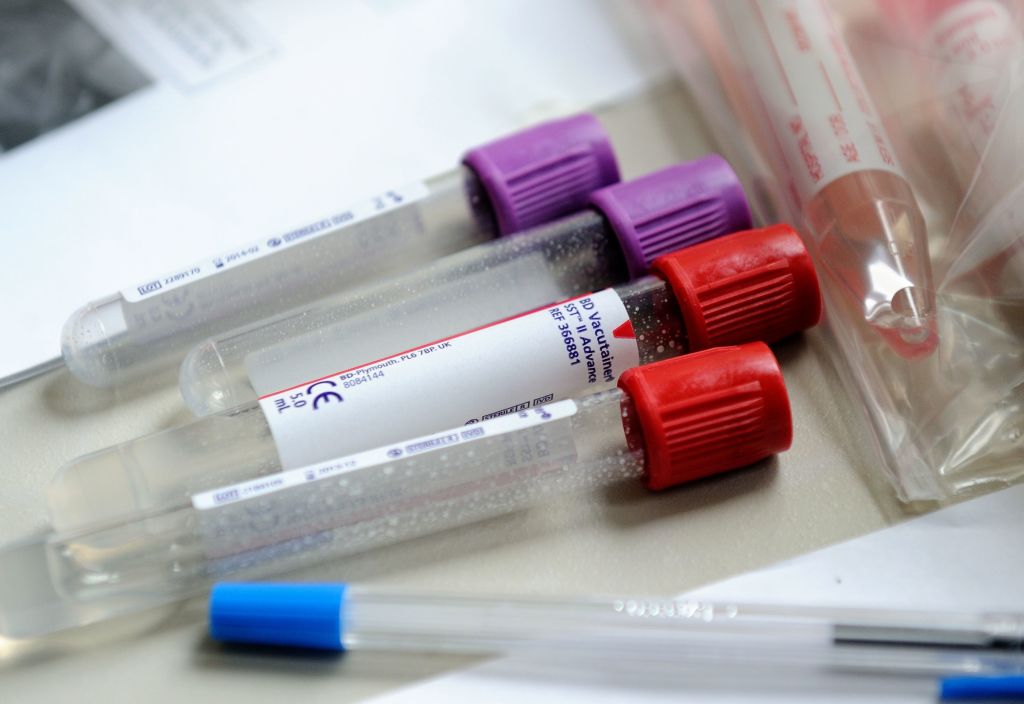Lab leaks have happened before, and probably more often than you'd think


A free daily email with the biggest news stories of the day – and the best features from TheWeek.com
You are now subscribed
Your newsletter sign-up was successful
As researchers continue to investigate the origins of COVID-19, there has been an increased focus on the lab leak theory, a once-taboo hypothesis gaining credibility in the public and scientific communities that suggests the SARS-CoV-2 virus escaped from a lab in China.
But as many perhaps wouldn't know, lab leaks have not only happened multiple times before, they've happened relatively recently, as well.
"Nearly every SARS case since the original epidemic has been due to lab leaks — six incidents in three countries, including twice in a single month from a lab in Beijing," writes Dr. Zeynep Tufekci for The New York Times.
The Week
Escape your echo chamber. Get the facts behind the news, plus analysis from multiple perspectives.

Sign up for The Week's Free Newsletters
From our morning news briefing to a weekly Good News Newsletter, get the best of The Week delivered directly to your inbox.
From our morning news briefing to a weekly Good News Newsletter, get the best of The Week delivered directly to your inbox.
In 2007, foot-and-mouth disease, a virus able to "devastate livestock," escaped via drainage pipe leak from a U.K. lab with the "highest biosafety rating," reports Tufekci. And don't think America hasn't made its own mistakes. In 2012, the U.S. Centers for Disease Control and Prevention reported "11 laboratory-acquired infections across six years," typically in BSL-3 labs, a biosafety rating one step down from the maximum BSL-4. "In each instance," writes Tufekci, exposure was not realized until "lab workers became infected."
To curb potential disasters, scientists have suggested stricter controls, or moving research labs outside "densely populated cities." Some have even mentioned implementing a "stronger risk-benefit analysis" before researching a pathogen that could "inadvertently spark pandemics."
Whatever the path, Tufekci calls on government officials and scientists to put "public interest before personal ambitions" and acknowledge biomedical research as a powerful, but potentially dangerous tool.
Read more at The New York Times.
A free daily email with the biggest news stories of the day – and the best features from TheWeek.com
Brigid Kennedy worked at The Week from 2021 to 2023 as a staff writer, junior editor and then story editor, with an interest in U.S. politics, the economy and the music industry.
-
 Local elections 2026: where are they and who is expected to win?
Local elections 2026: where are they and who is expected to win?The Explainer Labour is braced for heavy losses and U-turn on postponing some council elections hasn’t helped the party’s prospects
-
 6 of the world’s most accessible destinations
6 of the world’s most accessible destinationsThe Week Recommends Experience all of Berlin, Singapore and Sydney
-
 How the FCC’s ‘equal time’ rule works
How the FCC’s ‘equal time’ rule worksIn the Spotlight The law is at the heart of the Colbert-CBS conflict
-
 Blue Origin launches Mars probes in NASA debut
Blue Origin launches Mars probes in NASA debutSpeed Read The New Glenn rocket is carrying small twin spacecraft toward Mars as part of NASA’s Escapade mission
-
 Dinosaurs were thriving before asteroid, study finds
Dinosaurs were thriving before asteroid, study findsSpeed Read The dinosaurs would not have gone extinct if not for the asteroid
-
 SpaceX breaks Starship losing streak in 10th test
SpaceX breaks Starship losing streak in 10th testspeed read The Starship rocket's test flight was largely successful, deploying eight dummy satellites during its hour in space
-
 Rabbits with 'horns' sighted across Colorado
Rabbits with 'horns' sighted across Coloradospeed read These creatures are infected with the 'mostly harmless' Shope papilloma virus
-
 Lithium shows promise in Alzheimer's study
Lithium shows promise in Alzheimer's studySpeed Read Potential new treatments could use small amounts of the common metal
-
 Scientists discover cause of massive sea star die-off
Scientists discover cause of massive sea star die-offSpeed Read A bacteria related to cholera has been found responsible for the deaths of more than 5 billion sea stars
-
 'Thriving' ecosystem found 30,000 feet undersea
'Thriving' ecosystem found 30,000 feet underseaSpeed Read Researchers discovered communities of creatures living in frigid, pitch-black waters under high pressure
-
 New York plans first nuclear plant in 36 years
New York plans first nuclear plant in 36 yearsSpeed Read The plant, to be constructed somewhere in upstate New York, will produce enough energy to power a million homes
